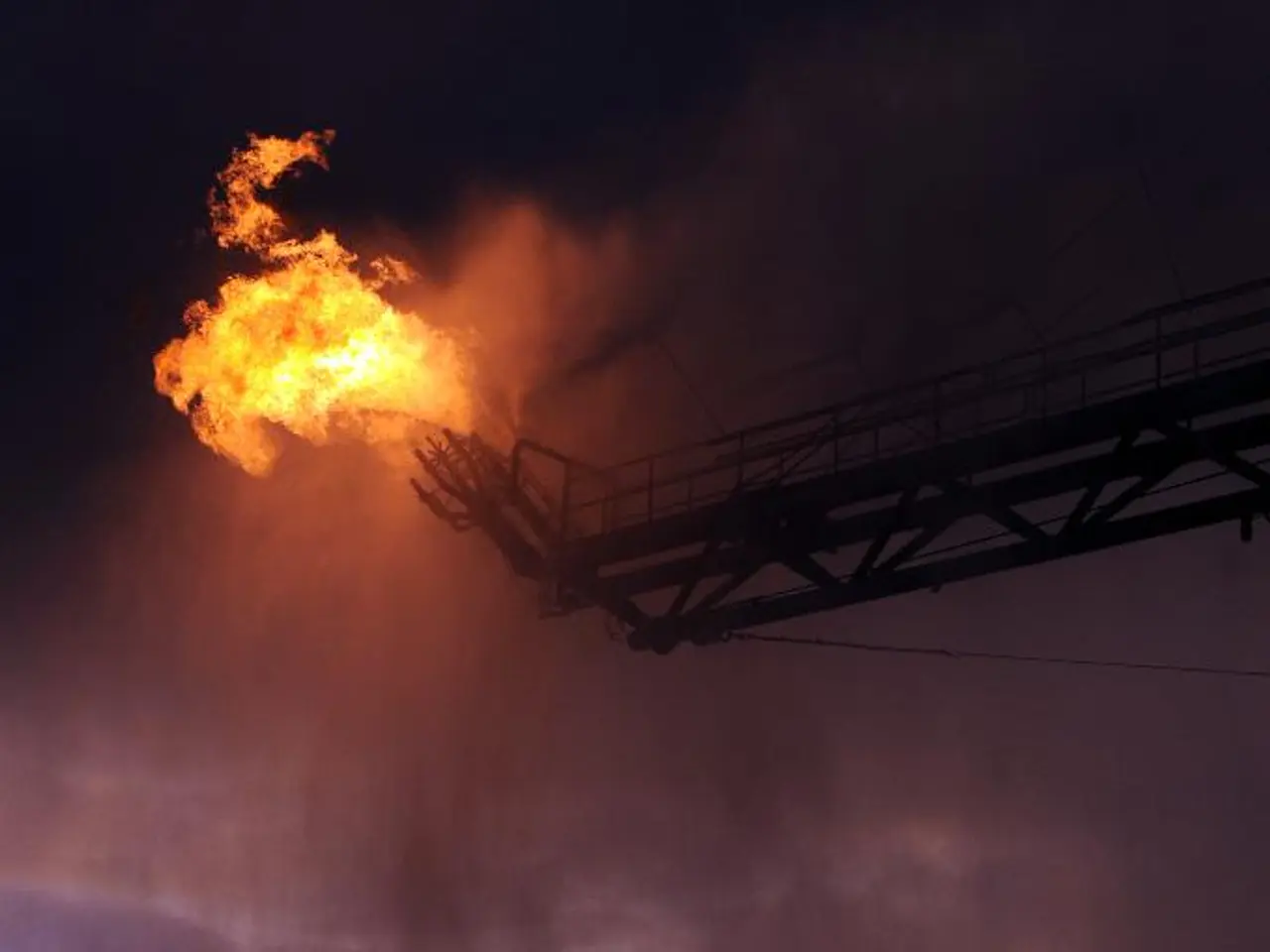Jackdaw Offshore Gas Facility Established in the North Sea stands amidst Contested Drilling Area, according to Sky News
The UK government has signalled its intention to approve the development of the Jackdaw and Rosebank fields in the North Sea, marking a significant step towards their installation and production phases. This decision reflects a delicate balance between economic growth and climate commitments, as the government plans to support new oil and gas projects to secure energy supply and economic benefits while maintaining rigorous environmental assessments.
The UK Supreme Court has reinforced that Environmental Impact Assessments (EIAs) for oil and gas developments must include emissions downstream from fossil fuel use (scope 3 emissions), illustrating a legal requirement to consider climate impacts even when approving fossil fuel infrastructure. However, the court also stated that the legal framework does not prohibit approving projects with negative environmental impacts, as long as these effects are properly assessed.
The Jackdaw and Rosebank fields are among the largest remaining untapped oil and gas resources in the region, indicating significant economic importance. The public is closely watching the developments, urging the government to balance economic growth with climate commitments. Public outcry against projects like Jackdaw highlights growing concern for environmental sustainability.
Climate campaigners celebrate the court's ruling as a victory, urging the government to reject projects perpetuating oil and gas dependency. Tessa Khan, executive director of Uplift, has urged the government to reject projects like Jackdaw and Rosebank, stating that they perpetuate oil and gas dependency and are inconsistent with the UK's long-term sustainability goals.
The outcome of decisions regarding Jackdaw and Rosebank will impact the energy sector and the UK's stance on transitioning away from oil and gas dependency. The government, under the leadership of Sir Keir Starmer, faces a dilemma due to the court ruling, as it promised not to issue new oil and gas licenses during the election campaign. The government's decisions in the coming months will shape the energy landscape and send a message about the country's commitment to a greener future.
Shell, Equinor, and Ithaca Energy have already invested substantial amounts in these ventures. Shell is in the final stages of constructing its platform in Norway, while the installation site for the platform in the Jackdaw and Rosebank fields is yet to begin. Downing Street's efforts to boost economic growth could face political ramifications due to the court ruling and potential rejection of the licenses for Jackdaw and Rosebank.
In summary, the UK government's decision to approve the Jackdaw and Rosebank North Sea projects signifies a delicate balance between economic growth and climate commitments. The projects remain controversial but are significant for the UK's energy security and economy. The government's decisions in the coming months will determine the energy landscape and the country's commitment to a greener future.
The Jackdaw and Rosebank fields, despite their economic importance, have become the subject of public outcry due to environmental concerns, as climate campaigners argue that approving these projects would perpetuate oil and gas dependency and be inconsistent with the UK's long-term sustainability goals. In sports terminology, this situation can be likened to a high-stakes game where the UK government, under the leadership of Sir Keir Starmer, has the ball, but any move to approve these projects may result in a penalty for failing to meet climate commitments, while a decision to reject them may score a point for environmental sustainability. However, as the projects are already backed by companies like Shell, Equinor, and Ithaca Energy, the government faces a tough call, as the fate of these developments could significantly impact the energy sector and the UK's stance on transitioning away from oil and gas dependency.





